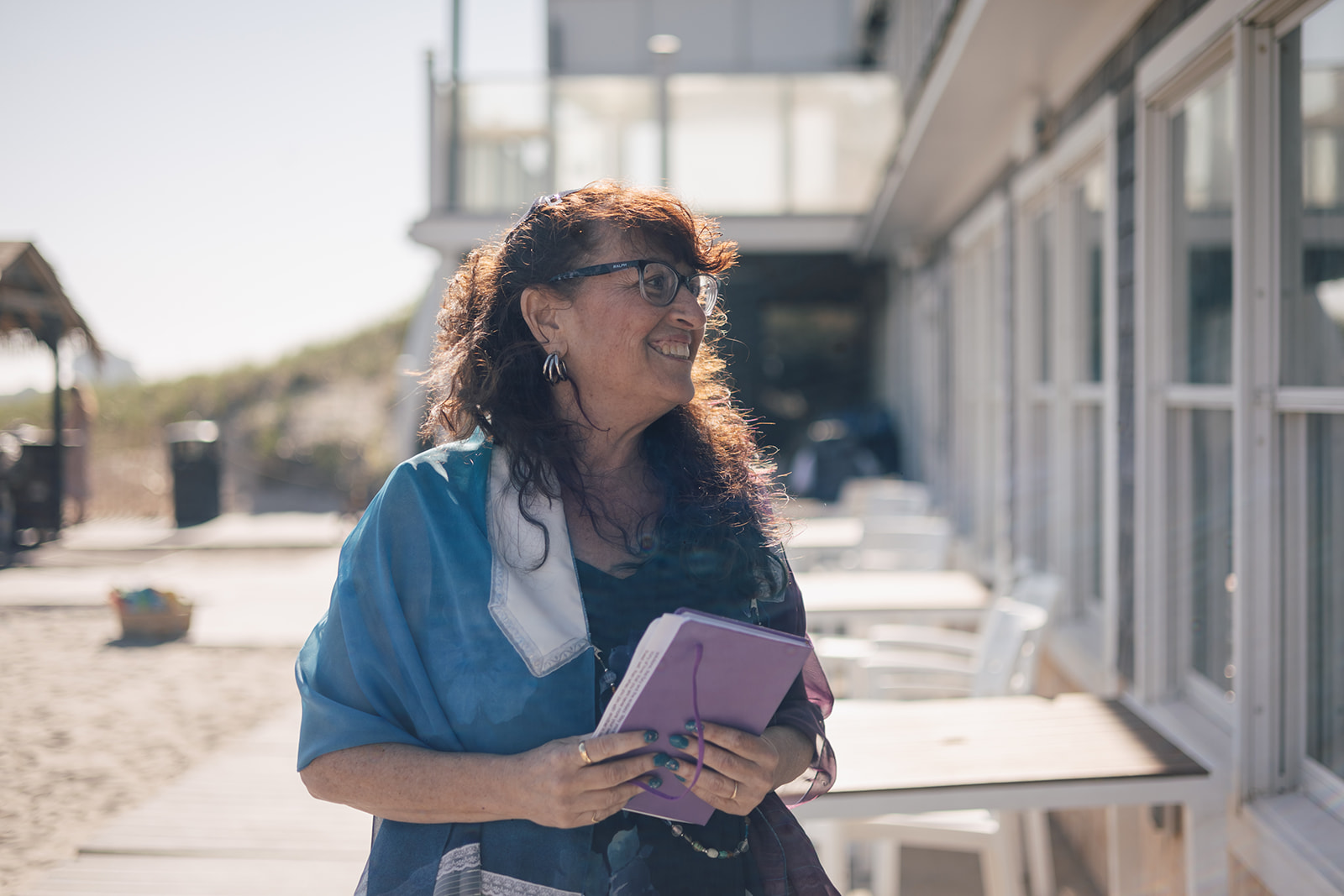I became a Reconstructionist because of Rabbi Mordecai Kaplan’s rejection of the Divine election of the Jewish people. For me, it wasn’t about theology, but ethics and politics. Of course, I didn’t think a personalized, choosing God made any sense. But far more disturbing was the idea that any one group of people had a destiny greater than or more just than any other group of people. To me, that is the heart of bigotry. And as Kaplan says in The Future of the American Jew (1948), it is a dangerous “maladjustment.”
I am so grateful that this conversation continues. When we are asked, or ask ourselves, what makes Reconstructionists unique in the ever-widening and flattening denominations and stripes of Jewishness, it is this: the radical notion that all people and peoples are equally beloved of God and have a role to play in the future redemption of our species and planet.
And this idea of radical egalitarianism is more necessary now than we might have thought. The forces of White Christian Nationalism in the United States and virulent Jewish supremacy in Israel (see Menachem Klein’s essay “Israel’s Rule Over the Palestinians Has Created a New Judaism,” in Haaretz, April 8, 2023) make clear what notions of Divine election portend.
I would suggest that it is not enough for us to change a few prayers in our liturgy — bakhar banu (who has chosen us from among all the peoples) to kervanu la’avodato (who has brought us near to His service) — to live into Kaplan’s rejection of chosenness. That is a first step, yes, but it is mostly an insider conversation. Only those who know the liturgy and care about its meaning (and musicality) get it. Far more important is confronting the legacy of chosenness — of election, wherever it rears its head and comes into play — and, most especially, in confronting it at its source: in the Hebrew Bible.
For it is the Hebrew Bible’s focus on Divine election of Israel (the people, not the state) that forms not only the basis for the Jewish people’s notion of chosenness but also underpins the doctrine of supersessionism in Christianity, and gives rise to the notions of Manifest Destiny and the Doctrine of Discovery — both justifications for the rape, pillaging, displacement and genocides of entire peoples throughout the Western hemisphere (and elsewhere). These are the very ideas that supported settler-colonial invasion and imperialism in an earlier age, and are being used to support contemporary White Christian Nationalisms and Jewish supremacies, which are both equally frightening.
We Jews are not the only inheritors and interpreters of the Hebrew Bible, to be sure. It is a sacred text to Christians and Muslims as well. However, as Jews, we read the Hebrew Bible liturgically every week. As such, we have an obligation to confront its problematic passages just as we revel in its inspirational chapters. As an earlier generation asked us to read Torah to root out and confront its patriarchy, misogyny and sexism (and currently, its homophobia, heteronormativity and gender biases), we must also read it with a critique of Divine election. We must contextualize, deconstruct and evaluate our sacred texts against our belief in radical egalitarianism and inclusion. We must understand and teach about the pastoral and psychological comforts of chosenness in a period of powerlessness versus the dangers of holding onto these notions when the tools of destruction and domination lie so close to so many hands.
This work of fighting Jewish supremacy is the work of reconstructing Judaism. As Kaplan said in The Future of the American Jew:
Far from being a factor for Jewish survival, the doctrine of Israel’s election is henceforth bound to be, ideologically, a definite hindrance. … Retaining a doctrine like the election of Israel … is bound to produce further maladjustment in the Jew and to stunt the growth of Judaism. (p. )
I would suggest not examining and rejecting Divine election is also hindering the growth and salvation of humanity and the planet we live on.








3 Responses
Thank you Rabbi.
Amen
A wonderful and necessary call to action – thank you Rabbi Wechterman!